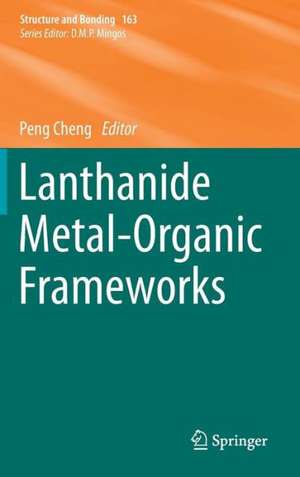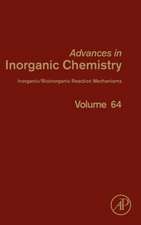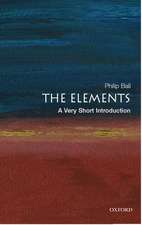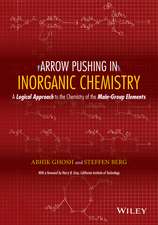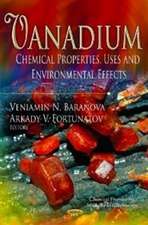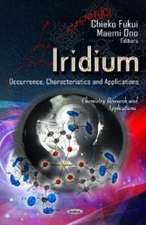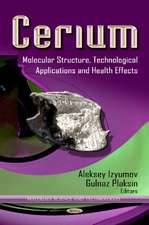Lanthanide Metal-Organic Frameworks: Structure and Bonding, cartea 163
Editat de Peng Chengen Limba Engleză Hardback – 19 ian 2015
| Toate formatele și edițiile | Preț | Express |
|---|---|---|
| Paperback (1) | 1220.88 lei 6-8 săpt. | |
| Springer Berlin, Heidelberg – 22 oct 2016 | 1220.88 lei 6-8 săpt. | |
| Hardback (1) | 1227.04 lei 6-8 săpt. | |
| Springer Berlin, Heidelberg – 19 ian 2015 | 1227.04 lei 6-8 săpt. |
Din seria Structure and Bonding
- 24%
 Preț: 986.77 lei
Preț: 986.77 lei - 24%
 Preț: 1191.59 lei
Preț: 1191.59 lei -
 Preț: 683.12 lei
Preț: 683.12 lei - 18%
 Preț: 1820.52 lei
Preț: 1820.52 lei -
 Preț: 366.85 lei
Preț: 366.85 lei -
 Preț: 386.81 lei
Preț: 386.81 lei -
 Preț: 381.98 lei
Preț: 381.98 lei - 18%
 Preț: 1812.35 lei
Preț: 1812.35 lei - 18%
 Preț: 1219.01 lei
Preț: 1219.01 lei - 18%
 Preț: 1217.58 lei
Preț: 1217.58 lei - 18%
 Preț: 1215.70 lei
Preț: 1215.70 lei - 18%
 Preț: 1219.01 lei
Preț: 1219.01 lei - 18%
 Preț: 1219.31 lei
Preț: 1219.31 lei - 18%
 Preț: 1824.19 lei
Preț: 1824.19 lei - 18%
 Preț: 1823.39 lei
Preț: 1823.39 lei - 18%
 Preț: 1218.06 lei
Preț: 1218.06 lei - 18%
 Preț: 1821.95 lei
Preț: 1821.95 lei -
 Preț: 381.00 lei
Preț: 381.00 lei - 18%
 Preț: 1228.62 lei
Preț: 1228.62 lei - 18%
 Preț: 1218.21 lei
Preț: 1218.21 lei - 18%
 Preț: 1212.68 lei
Preț: 1212.68 lei - 18%
 Preț: 1820.08 lei
Preț: 1820.08 lei - 18%
 Preț: 1827.32 lei
Preț: 1827.32 lei - 18%
 Preț: 2090.92 lei
Preț: 2090.92 lei - 18%
 Preț: 1217.10 lei
Preț: 1217.10 lei - 18%
 Preț: 1821.81 lei
Preț: 1821.81 lei - 18%
 Preț: 1216.48 lei
Preț: 1216.48 lei - 18%
 Preț: 1820.22 lei
Preț: 1820.22 lei - 15%
 Preț: 640.24 lei
Preț: 640.24 lei - 18%
 Preț: 1811.86 lei
Preț: 1811.86 lei
Preț: 1227.04 lei
Preț vechi: 1496.40 lei
-18% Nou
Puncte Express: 1841
Preț estimativ în valută:
234.80€ • 245.76$ • 195.42£
234.80€ • 245.76$ • 195.42£
Carte tipărită la comandă
Livrare economică 31 martie-14 aprilie
Preluare comenzi: 021 569.72.76
Specificații
ISBN-13: 9783662457726
ISBN-10: 3662457725
Pagini: 200
Ilustrații: IX, 371 p. 250 illus., 184 illus. in color.
Dimensiuni: 155 x 235 x 27 mm
Greutate: 0.71 kg
Ediția:2015
Editura: Springer Berlin, Heidelberg
Colecția Springer
Seria Structure and Bonding
Locul publicării:Berlin, Heidelberg, Germany
ISBN-10: 3662457725
Pagini: 200
Ilustrații: IX, 371 p. 250 illus., 184 illus. in color.
Dimensiuni: 155 x 235 x 27 mm
Greutate: 0.71 kg
Ediția:2015
Editura: Springer Berlin, Heidelberg
Colecția Springer
Seria Structure and Bonding
Locul publicării:Berlin, Heidelberg, Germany
Public țintă
ResearchRecenzii
“‘Lanthanide metal-organic frameworks’ is an outstanding book as for general chemistry readership including graduate and post-graduate students and for researchers specializing in the field of MOF and Ln-MOF. This book can lay foundation for a successful course of further investigations and applications of Ln-MOF and its purchase is highly recommended for everybody who is interesting in this subject.” (Joao Rocha, Frontiers in Chemistry, August, 2015)
Textul de pe ultima copertă
The series Structure and Bonding publishes critical reviews on topics of research concerned with chemical structure and bonding. The scope of the series spans the entire Periodic Table and addresses structure and bonding issues associated with all of the elements. It also focuses attention on new and developing areas of modern structural and theoretical chemistry such as nanostructures, molecular electronics, designed molecular solids, surfaces, metal clusters and supramolecular structures. Physical and spectroscopic techniques used to determine, examine and model structures fall within the purview of Structure and Bonding to the extent that the focus is on the scientific results obtained and not on specialist information concerning the techniques themselves. Issues associated with the development of bonding models and generalizations that illuminate the reactivity pathways and rates of chemical processes are also relevant.The individual volumes in the series are thematic. The goal of each volume is to give the reader, whether at a university or in industry, a comprehensive overview of an area where new insights are emerging that are of interest to a larger scientific audience. Thus each review within the volume critically surveys one aspect of that topic and places it within the context of the volume as a whole. The most significant developments of the last 5 to 10 years should be presented using selected examples to illustrate the principles discussed. A description of thephysical basis of the experimental techniques that have been used to provide the primary data may also be appropriate, if it has not been covered in detail elsewhere. The coverage need not be exhaustive in data, but should rather be conceptual, concentrating on the new principles being developed that will allow the reader, who is not a specialist in the area covered, to understand the data presented. Discussion of possible future research directions in the area is welcomed. Review articles for the individual volumes are invited by the volume editors.Readership: research scientists at universities or in industry, graduate students
Caracteristici
Overview chapters introduce the newcomer to the topic covered Series covers hot topics of frontier research summarized by reputed scientists in the field Volumes are useful and of relevance for a long period of time
